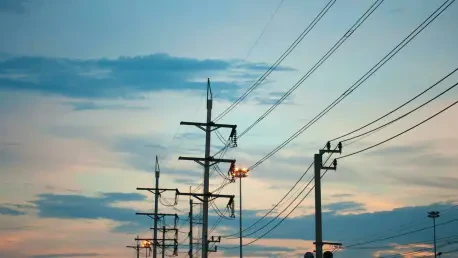With us today is Christopher Hailstone, a renowned expert in energy management and grid reliability, to discuss the implications of Senate Bill 6 and the evolving energy landscape in Texas. As demand for electricity surges, particularly from large businesses, Texas lawmakers are focused on ensuring reliable energy delivery while maintaining economic growth. Christopher will share his insights on the objectives of Senate Bill 6, its potential impact on businesses, and the challenges and opportunities Texas faces in meeting its future energy needs.
Can you explain the primary objectives of Senate Bill 6 and how it aims to address the energy needs of Texas?
Senate Bill 6 is designed to provide a more reliable forecast of electricity demands, especially as the state anticipates a significant uptick in consumption from industries like data centers and oil and gas. By imposing new requirements on businesses, the bill seeks to improve load forecasting and prevent the grid from being overbuilt or underbuilt—thereby saving costs for consumers and avoiding outages during extreme weather events.
What specific requirements would the bill impose on new businesses looking to connect to the energy grid, particularly those needing more than 75 Megawatts? And, can you elaborate on the disclosure requirements for companies in terms of out-of-state energy requests?
Businesses needing over 75 Megawatts must disclose their energy demands, including any similar requests they might have in Texas or elsewhere. These disclosures aim to provide a clearer picture for ERCOT to manage load forecasting effectively. By knowing whether companies have alternative energy arrangements, ERCOT can better predict actual grid usage, although this has raised privacy concerns among business groups.
How does Senate Bill 6 propose to ensure reliable electricity for Texans without discouraging business growth?
The bill attempts to balance reliability with growth by imposing upfront costs on businesses to study transmission feasibility and by requiring them to invest in infrastructure if needed. This ensures new entrants are both serious and prepared for the energy they require. It’s a delicate act of not raising barriers so high that businesses are deterred while still safeguarding the grid.
Why do some business groups believe the bill is too heavy-handed, and what are their main concerns regarding ERCOT’s power to disconnect major energy users during an emergency? How might the bill’s current provisions impact operations for industries like data centers?
Concerns stem from the bill’s provision granting ERCOT the authority to disconnect large energy users during emergencies, which some see as too intrusive and potentially harmful to operations, especially for data centers that require constant power. The businesses argue this could jeopardize critical infrastructure and data safety—an issue compounded by data centers’ competitive nature and proprietary information.
How does the legislation plan to balance the interests of large industrial companies with the need for grid reliability?
By allowing for negotiations between power generators and companies, the bill provides a pathway for tailored energy arrangements, overseen by the Public Utility Commission. This regulatory role ensures fairness and efficiency but poses challenges such as the 180-day review period, which may delay forging and adjusting these energy contracts—especially crucial for industries undergoing rapid growth.
What role would the Public Utility Commission play under this bill, specifically concerning arrangements between power generators and companies?
The Public Utility Commission is tasked with reviewing and approving agreements between businesses and power generators, ensuring transactions align with broader grid reliability goals. This oversight aims to prevent arrangements that could undermine the grid’s stability or regional energy distribution—though the Commission’s review duration has sparked debate over potential impacts on business operations.
Can you discuss the financial obligations placed on businesses for transmission work necessary for energy delivery, and how would the allocation of transmission costs be managed?
Businesses would shoulder significant upfront financial burdens, paying for studies on transmission viability and potentially investing in building power lines and acquiring necessary equipment. The bill outlines a plan to allocate transmission costs by peak demand, emphasizing fairness by having those contributing most to energy surges cover associated additional costs.
How is the growth in demand for energy from businesses like data centers and the oil and gas industry impacting the grid currently?
A surge in energy demand is straining existing infrastructure, challenging ERCOT’s ability to maintain stability amid growth. This heightened need is driven by energy-intensive operations, pushing the grid’s limits and highlighting the importance of accurately forecasting demand—a critical aspect Senate Bill 6 intends to address.
What changes do representatives from the Data Center Coalition and Powering Texans suggest for the bill?
These representative groups suggest revisiting provisions related to data disclosures and ERCOT’s emergency powers, advocating for less invasive requirements that don’t endanger operations. They propose tailored solutions that refine grid oversight while maintaining flexibility for emergent, innovative business models.
With a focus on emergency situations, how does the bill propose using backup generators, and what are the potential implications?
The bill suggests utilizing backup generators in emergencies to offload grid consumption, potentially leading to pollution and regulatory concerns due to extensive backup use. Especially diesel-powered generators pose environmental challenges, raising questions about emissions compliance and long-term sustainability under stress scenarios.
In your opinion, what opportunities does the increasing energy demand present for Texas, and how can they be managed effectively?
The rising demand offers tremendous growth opportunities, attracting cutting-edge industries and strengthening the state’s economy. By strategically managing grid reliability, investing in infrastructure, and leveraging technological advancements, Texas can harness this momentum to foster innovation while assuring stable, affordable electricity for both businesses and residents.









